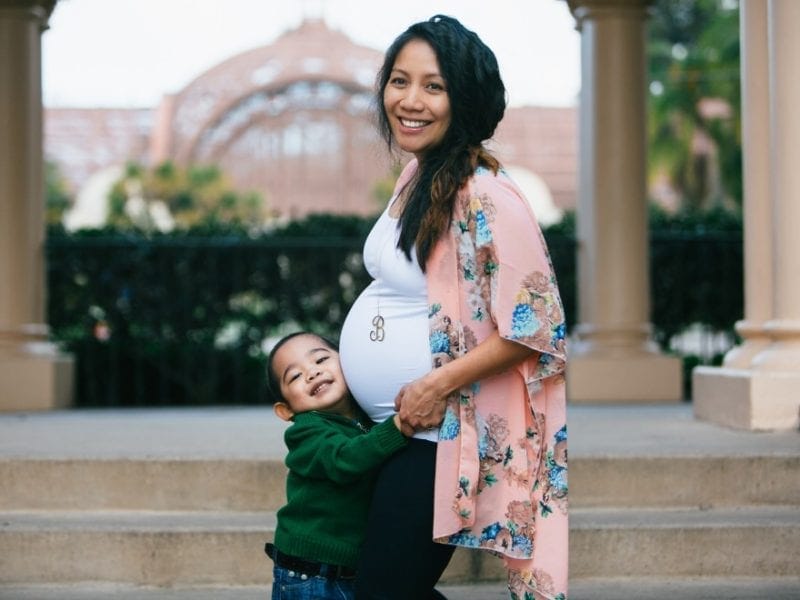What is a Doula?
There are birth doulas, postpartum doulas, antepartum doulas, sibling doulas, bereavement doulas, and many more. This is an overview of each kind of doula and what they do.
Ok, what’s the 411 on Doulas? Often we think a Doula is simply someone who is a coach during labor for a birthing person. Are we even sure we need a coach? Someone we don’t know that would be with us in such an intimate moment?
In this post we outline the different types of doulas and exactly how they may help a family in birth preparation, labor, birth, postpartum, and even in loss and grief.
Yes, the most commonly known type of doula is a birth doula. This is someone that’s trained to assist a birthing person and their partner both physically and emotionally. But the word “doula” means servant and these doulas serve families in a vast range of aspects surrounding birth. Not just birth.
What are the other types of doulas? Well, there are Sibling Doulas, Postpartum Doulas, Stillbirth or Loss Doulas, and even Before Birth Doulas called Antepartum Doulas. The common thing that all doulas have in common is their purpose is to provide support to families, whether it’s physical, emotional or spiritual. The ultimate goal of a Doula is to blend in in a way that allows the family to feel closer and have a deeper experience with each other as they move through the transition they are experience.
So, let’s break down the different types of doulas available to support your family.
Birth Doula
A birth doula usually starts providing support a few weeks prior to the baby’s arrival. During this time, the doula sits with you and asks questions about your birth preferences (sometimes called a birth plan). This allows everyone to be on the same page during labor and birth. They will also often talk about after birth and signs they parter can watch for that may indicated postpartum depression or anxiety to better support the birthing parent.
Birth doulas educate mothers, birthing parents and partners on relaxation and pain relief techniques which can include: breathing exercises, massage, birthing positions, pressure points, and words of affirmation.
They also physically support the birthing parent by performing or encouraging the partner to assist with the learned techniques during labor and birth. They might even remind birthing parents and partners to eat when labor is long, or encourage the birth partner to take a rest.
Doulas do not provide medical assistance. They are well versed in all things pregnancy and birth and can provide information and education to families, even on the fly, but they don’t provide medical care. They help mothers and birthing people, or their partners, emotionally during what can be an exhausting and overwhelming time. They also provide encouragement for parents to advocate for their wishes to medical staff and family. And after the birth, these doulas sometimes assist with breastfeeding and often provide one postpartum visit.
Antepartum Doula
Antepartum means, “before birth.” A doula that provides this type of support, assists mothers and birthing parents with high-risk pregnancies that can result in bed rest. There are a variety of reasons bed rest may be medically directed and can include:
gestational diabetes
preeclampsia
hypertension
multiples
hyperemesis gravidarum
incompetent cervix
placenta abruption
placenta previa
placenta accrete
low amniotic fluid
Bed rest can be a very difficult time, especially if there are other children in the home or if you are on bedrest in the hospital away from your family. Antepartum doulas are there to help with many different tasks in order to make bed rest as relaxing as possible for you. These tasks can include, preparing a birth plan, helping with other children, light housework, and meal preparation. They’re also able to assist with comfort and relaxation techniques, as well as being an emotional support during this physically, mentally and emotionally challenging time of life.
Sibling Doula
Part of a family’s birth plan may include having their children present at the birth, or they may decide it’s best that their other kiddos meet baby soon after. Regardless of a family’s decision to have older siblings at the birth or not, older siblings may need someone specifically designated to care for them. Not all families have a trusted person that is willing to be available at any hour of the day or night. A sibling doula is trained to care for little ones so parents can focus their attention and energy toward labor and birth.
Parents can relax knowing their children are in good hands. Sibling doulas care for kiddos at home, kiddos at the birthing center, or kiddos the hospital. They can assist children in the birthing room so they can witness their baby sibling’s entrance into the world or be at their side while they wait at home for baby to arrive.
Postpartum Doula
Bringing a new baby home is a huge transition and sometimes made harder by lack of parental leave from work. A postpartum doula helps with many different aspects of life after a baby comes home to ease that transition and make it easier on the family.
Postpartum Doulas assist with light housework, newborn laundry, taking care of older siblings, and meal preparation. Postpartum Doulas also help new parents and babies get the hang of breastfeeding, including bringing baby to the bedside so mothers can rest at night or during naps.
They aid with education and demonstrate different techniques such as breast pumping, swaddling, baby wearing, and safe-sleep practices. Sometimes, they simply hold the sweet, new babe so families can rest. They’re an emotional and educational support system for everything pertaining to newborn and maternal postpartum care.
Bereavement Doula
Sometimes new parents go home without the baby or babies they were expecting and waiting so long for. And more frequently than we often know families experience miscarriage — at least 1 in 5 pregnancies end in miscarriage. A Bereavement Doula provides support for birth experiences encompassing loss, including stillbirths, fatal diagnosis, and miscarriages. And some doulas specialize in perinatal loss, known as Perinatal Loss Doulas.
A Bereavement Doula will listen to your story and be with you to provide support in a safe, non-judgmental environment. They will provide continuous support throughout this difficult journey of loss. They talk through your options, support your decisions, provide resources (funeral homes, support groups, memorial ideas, books, websites) as well as sit with parents in conversations with medical professionals. They can help fill in the gaps if anything that was said happened to be missed.
Bereavement Doulas also work with extended family members to help them support each other, especially the birthing person and partner.
Doulas Support You & Your Family
Often doulas fill a role our closer family members may have provided. As medicine has advanced and birth has become more medicalized, we’ve lost the emotional and individual support that birthing people were surrounded with generations ago.
Most of us have never seen another birth before our first birth, except maybe youtube videos and birth story blog posts. Most of us have legit never seen, unclose, a parent feeding their baby at their chest. If we’ve never been experienced to a real life birth or sat with a friend or family member postpartum, how do we learn about what to really expect in birth, the postpartum days and in feeding our babies?
That’s why doulas are so important to achieving a supported birth.








